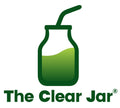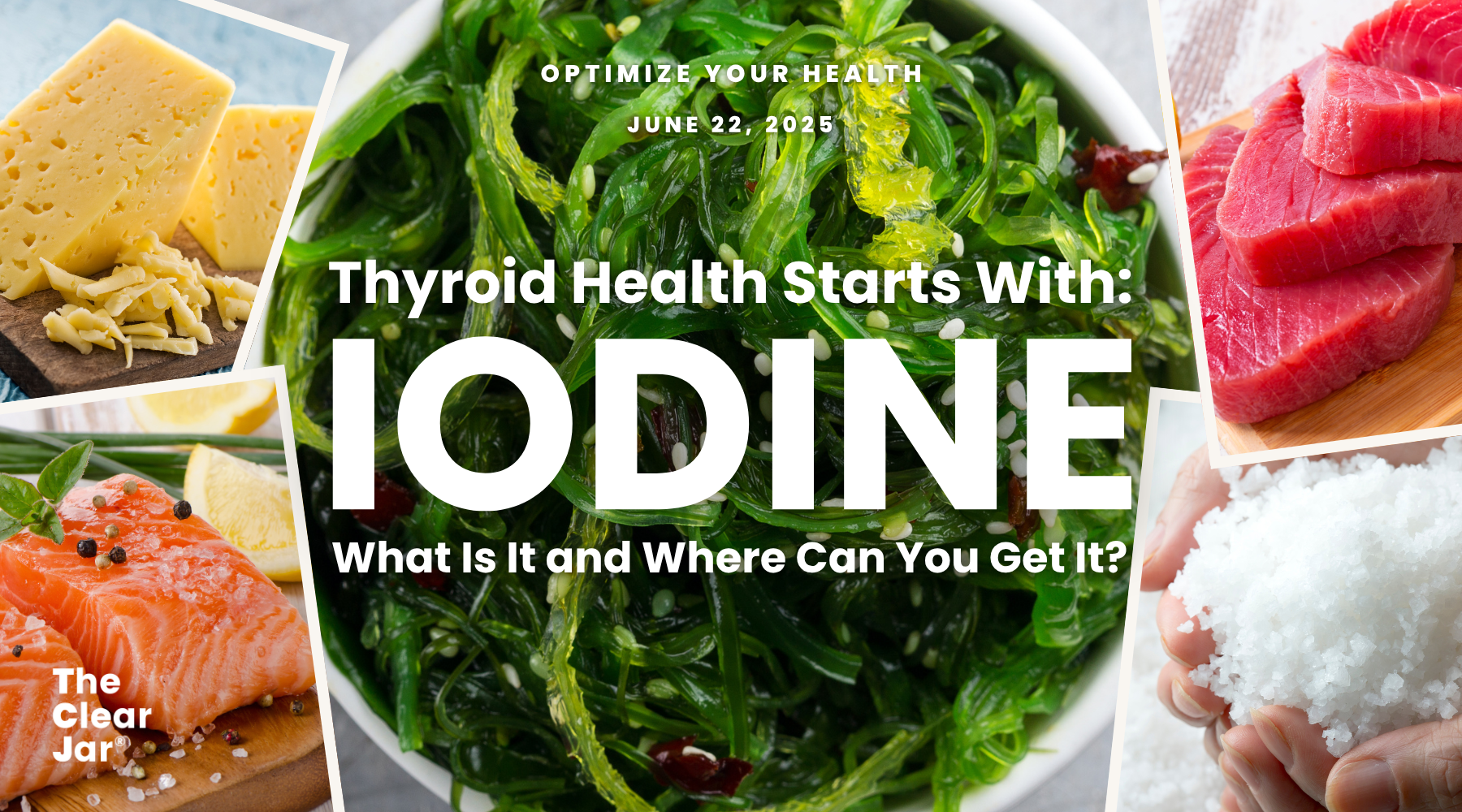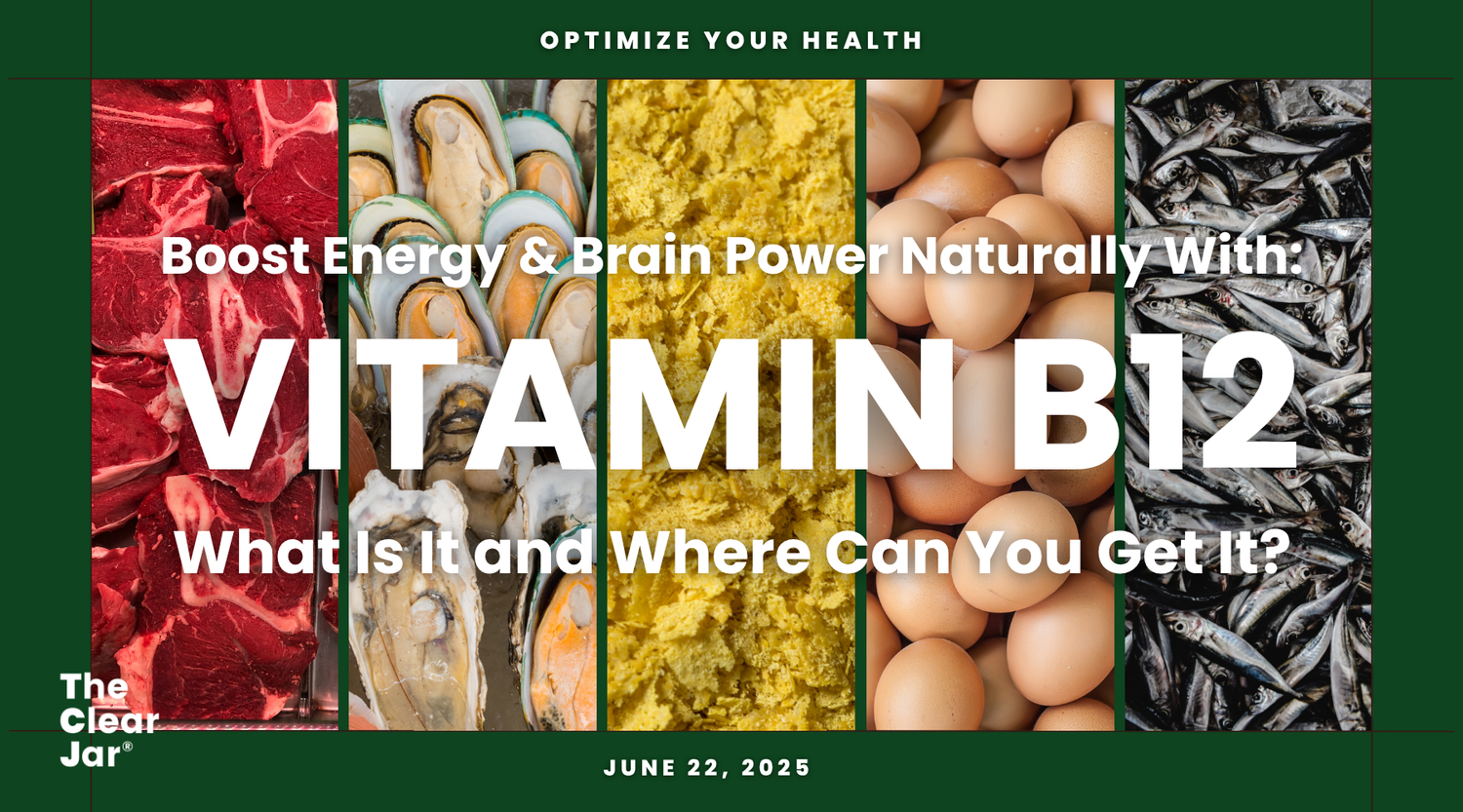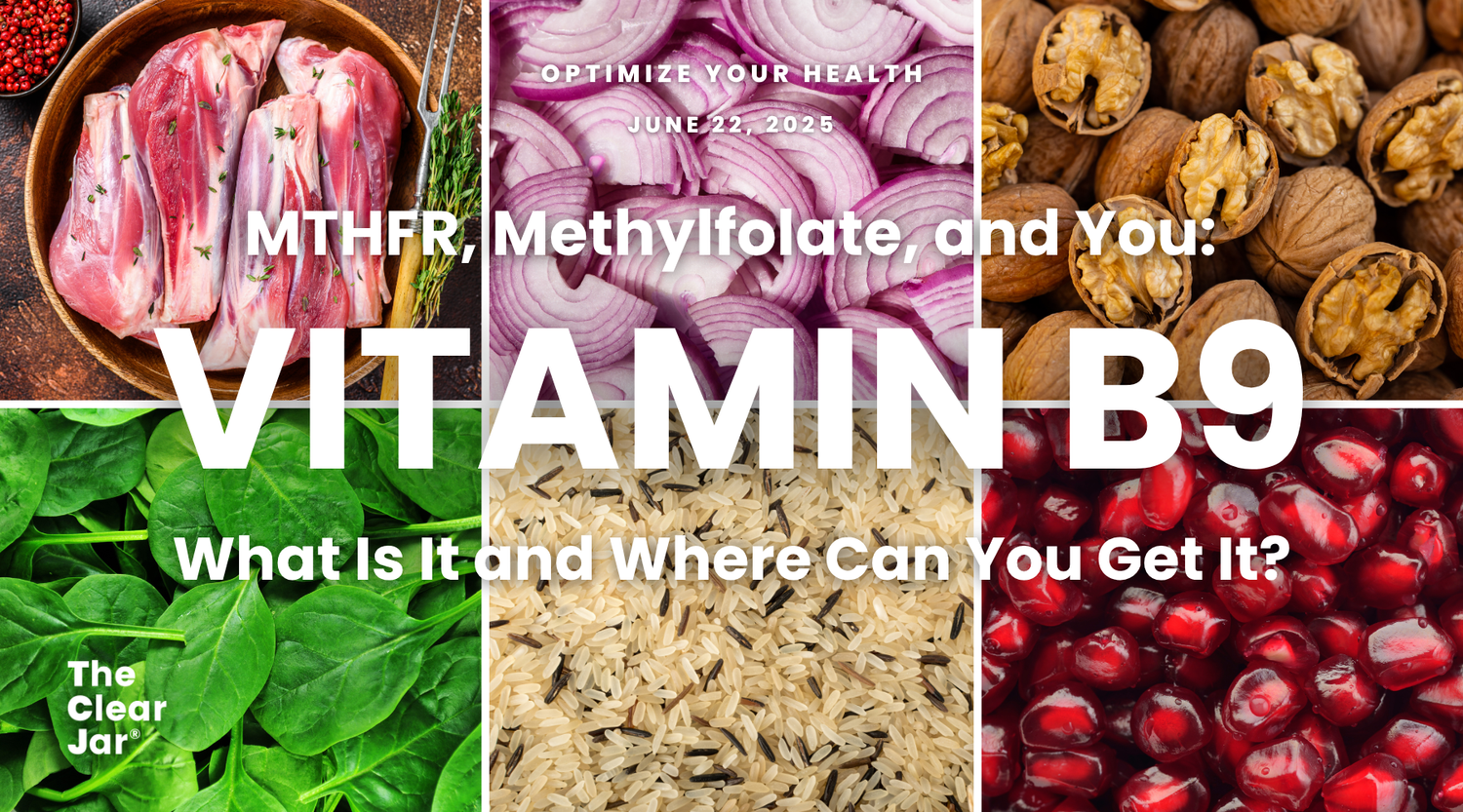Discover what iodine is and why it’s so important, particularly for your thyroid, and how you can make sure you’re getting enough.
Content Outline
- What is iodine?
- What is the function of iodine in the human body?
- Iodine: Which is the active form?
- Iodine-rich foods
- Iodine recipe: Seaweed and tuna salad
- Iodine supplements
- Why buy food-borne vitamins?
What is iodine?
Iodine is an essential trace mineral that’s required for thyroid hormone production, growth, and brain development. Found in seafood, dairy products and iodized salt, you must get it from your diet or via supplementation because the human body is unable to make its own iodine.
What is the function of iodine in the human body?
Iodine’s most important role in the body is to support thyroid function by supporting it produce thyroid hormones that regulate your metabolism, growth, and development1. Without enough iodine, your thyroid cannot function normally, and you are at risk of serious health issues, like an underactive thyroid (hypothyroidism) and goitre2.
The thyroid, a butterfly-shaped gland located at the front of your neck, uses iodine to produce two key hormones in the body, thyroxine (T4) and triiodothyronine (T3). These hormones are responsible for regulating metabolism, body temperature, heart rate and growth and development, particularly in the brain and nervous system3.
During pregnancy, iodine demands are increased because it is associated with fetal brain development. Some research has shown that maternal iodine deficiency during pregnancy can result in their babies growing up with lower IQs and neurodevelopmental delays.
The recommended daily iodine intake for adults is 150 micrograms per day, but this increases to 220 mcg daily during pregnancy, and further still to 290 mcg in breastfeeding mothers4.
Iodine: Which is the active form?
The most common active form of iodine is its ionized form, iodide. When you eat iodine-rich foods or take iodine supplements, they will typically contain iodine in the form of iodide, or it will be converted to it within the body, so that it can be used efficiently. Iodide is absorbed in the gastrointestinal tract and enters the bloodstream, where it is transported to the thyroid. Most of the body’s iodine is stored in the thyroid gland, approximately 70 to 80%5.
When it reaches the thyroid gland, iodide is oxidized to iodine, which attaches to a protein called thyroglobulin to create further molecules called diiodotyrosine and monoiodotyrosine. These molecules are then coupled by the enzyme thyroperoxidase to form the thyroid hormones, triiodothyronine (T3) and thyroxine (T4). The thyroid gland then releases T4 and T3 into the bloodstream. T4 is converted into the more active T3 which then goes on to its target tissues and unleashes its many benefits6.
What are T3 and T4?
Triiodothyronine (T3) and thyroxine (T4) are the two main hormones that are produced by the thyroid. T4 is the main hormone, but T3 is the more active form:
-
Triiodothyronine is the most active of the thyroid hormones and much of it is produced from the conversion of T4 rather than from the thyroid gland itself. Within the human body, it has crucial roles in metabolism, digestion, heart function, muscle control, bone health, and brain development7.
-
Thyroxine or T4 is the inactive form of thyroid hormones, so it doesn’t directly affect your cells, and instead must be converted to T3.
Having too much or too little thyroid hormones in your body can have a detrimental impact on your health, particularly in relation to the activity of your thyroid.
Too few thyroid hormones can cause an underactive thyroid or hypothyroidism. Too much thyroid hormone results in an overactive thyroid or hyperthyroidism.
Iodine-rich foods
The body can not produce iodine alone, so it must be acquired from your diet. Iodine-rich foods include:
Iodine recipe: Seaweed and tuna salad
Because iodine is found in abundance in sea vegetables and animal proteins, this delicious seaweed and tuna salad is the perfect way to support your thyroid health. If you’re not a fan of tuna, you can swap it for grilled salmon or shrimp instead.
Ingredients:
-
1 cup dried seaweed (wakame or nori)
-
150g grilled salmon or tuna, or shrimp
-
1 cucumber, thinly sliced
-
1 tablespoon sesame oil
-
1 tablespoon soy sauce
-
1 teaspoon rice vinegar
Method:
-
Grill the salmon, tuna, or shrimp until it is cooked thoroughly.
-
Rehydrate the seaweed in warm water for 5 to 10 minutes, or according to the package instructions.
-
Drain the seaweed and squeeze out as much of the excess water as possible.
-
In a mixing or salad bowl, toss the seaweed with sliced cucumber, sesame oil, soy sauce, and rice vinegar.
-
Using tongs, portion the salad onto a serving plate and top with the fish for an iodine-packed meal.
This dish is a great lunch or evening meal choice that not only delivers an iodine punch but also a healthy level of omega-3 fatty acids from the fish.
Important: It’s important to eat a healthy, balanced diet to get the iodine you need. Consuming too much or too little iodine can have adverse health effects.
Iodine supplements
Although the best approach to hitting your body’s daily iodine requirements is through your diet, supplementation may be beneficial for some groups, including:
-
Pregnant and breastfeeding women: Adequate thyroid hormone levels are needed for normal fetal development, and there is evidence that pregnant women are not getting optimal iodine, suggesting supplementation may be needed in some cases8.
-
Vegans: Because iodine is present in seafood and dairy products, vegans may be at risk of deficiency, especially if they also do not eat iodine-rich plant-based sources such as seaweed.
-
People with iodine deficiencies: Anyone who doesn’t eat or does not have access to iodized salt or iodine-rich food sources such as seafood may benefit from supplementation.
-
Individuals with thyroid conditions: Iodine is essential for the production of thyroid hormones that play vital roles in many physiological processes, including metabolic regulation. Therefore, people with hypothyroidism or other thyroid issues may benefit from iodine supplements, but only under the supervision of a healthcare professional.
Iodine supplements are available in several forms, including tablets, capsules, and liquids. They usually contain iodine in the following configurations:
-
Potassium iodide or sodium iodide – commonly used in dietary supplements and found in iodized salt. Potassium iodide is almost completely absorbed by the body9.
-
Potassium iodate – also used as an additive to iodized salt and because of its stability, can be beneficial in hot, humid climates.
-
Kelp– a natural source of iodine, perfect for anyone following a vegan diet or who would prefer a food-based supplement
-
Lugol's Solution – a medically used liquid form of iodine, sometimes used as a supplement, but should only be used under the direction of a physician
Please note: Iodine supplements should only be taken if approved by your doctor, physician, or other healthcare professional if you are pregnant, breastfeeding, have iodine deficiency, thyroid condition, or any other medical condition.
Which is the best iodine supplement?
The best iodine supplement for you will depend on your specific needs and whether you have a preference for natural sources, like kelp. However, iodized salts or supplements containing potassium iodide are readily absorbed by the body, making them a useful option if you need to raise your iodine levels.
Why buy food-born vitamins?
Iodine is an essential mineral that’s present in both the soil and the sea, with rich sources including seaweed, fish, and dairy products. Iodine has many important roles in the body, not least because it supports normal thyroid function and is a major component in the production of thyroid hormones.
Although the best way to ensure you’re getting enough iodine is through your diet, supplementation may be useful and necessary in some cases. If you are considering supplementing your iron intake, choose food-born options like those from The Clear Jar, which are less likely to cause toxicity, have no added fillers, and have improved bioavailability, absorption, and synergy.
If you’re looking for an iodine supplement, our Food-Born Multivitamin for Women with Iron can provide 75% of your daily value, alongside 20 other important vitamins and minerals required for optimal female health.
Check out our shop to explore our full range.
Written by: Leanne Edermaniger MSc







